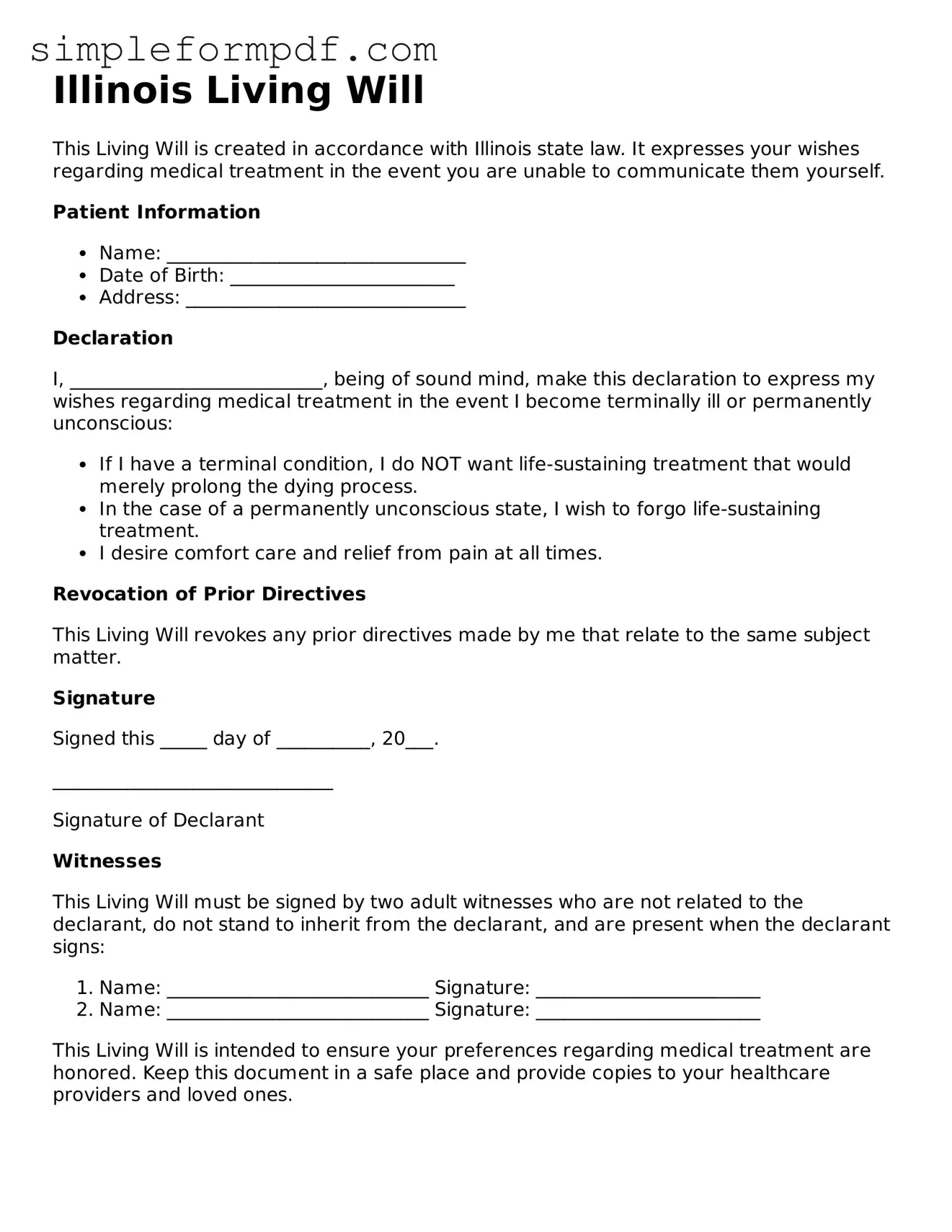Free Living Will Form for the State of Illinois
The Illinois Living Will form is a legal document that allows individuals to outline their preferences for medical treatment in the event they become unable to communicate their wishes. This form ensures that a person's healthcare decisions are respected and followed, reflecting their values and desires. To take control of your healthcare decisions, consider filling out the form by clicking the button below.
Launch Editor

Free Living Will Form for the State of Illinois
Launch Editor
Need instant form completion?
Finish Living Will online in just a few minutes.
Launch Editor
or
Download PDF
